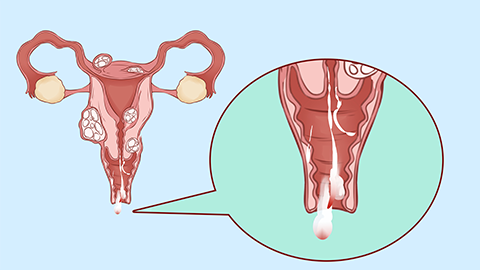What are the early symptoms of uterine cancer?
In general, early-stage uterine cancer may present with various obvious symptoms, commonly including abnormal vaginal bleeding, abnormal vaginal discharge, dull pain in the lower abdomen, menstrual disorders, and contact bleeding. If discomfort symptoms occur, it is recommended to seek timely diagnosis and treatment at a regular hospital. Detailed analysis is as follows:
In early-stage uterine cancer, the tumor tissue is fragile and prone to ulceration and bleeding, which can lead to abnormal vaginal bleeding. Women who have not yet reached menopause may experience irregular vaginal bleeding, usually with a small amount and short duration. Postmenopausal women may suddenly experience vaginal bleeding, often dark red or bright red in color, which should be considered an alarming signal.

2. Abnormal Vaginal Discharge
Stimulation of the uterine glands by the tumor or necrosis and infection of tumor tissue can cause changes in vaginal discharge. The discharge may increase in volume, change color from normal white to blood-tinged or purulent, and may also be accompanied by an odor. Its consistency may become thinner or thicker, clearly different from normal vaginal discharge.
3. Dull Pain in the Lower Abdomen
In early-stage uterine cancer, the uterus may contract, or the tumor may slightly compress or pull surrounding tissues, causing dull pain in the lower abdomen. The pain is usually intermittent, mild, and often manifests as a feeling of heaviness or dull pain in the lower abdomen, possibly worsening after physical exertion. It is easily mistaken for common gynecological discomfort.
4. Menstrual Disorders
Uterine cancer can interfere with the normal shedding and repair of the endometrium, thereby affecting the menstrual cycle. Patients may experience prolonged or shortened menstrual cycles, significantly increased or decreased menstrual flow, and some may develop prolonged menstruation with prolonged spotting, clearly contrasting with their previous regular menstrual pattern.
5. Contact Bleeding
Some patients may experience slight vaginal bleeding after sexual intercourse or gynecological examinations, known as contact bleeding. This occurs because the contact may irritate the tumor surface, causing bleeding from the fragile tumor tissue. The bleeding is usually minimal and bright red in color, warranting attention.
In addition, some patients may also experience symptoms such as backache, fatigue, and weakness. If any of the above symptoms appear, do not ignore them; timely medical consultation for gynecological examination is necessary to achieve an early diagnosis and initiate treatment promptly.








